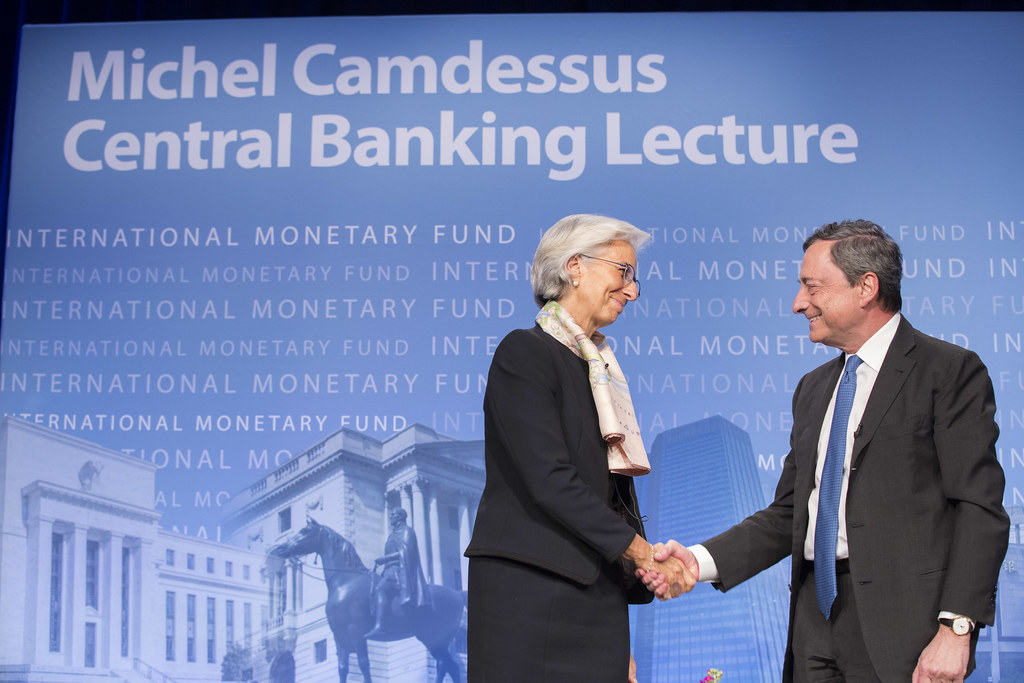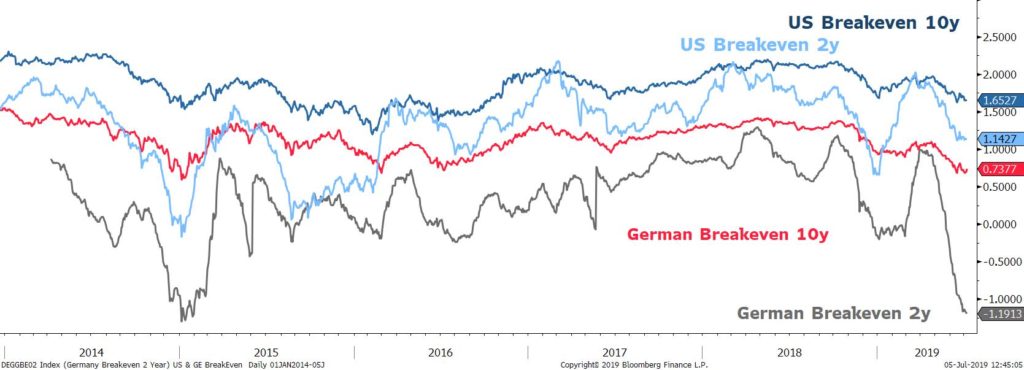
Date: 11 July, 2019 - Blog
Following intense negotiations, EU leaders have struck an agreement on top positions successors
The most important, marketwise, are the appointments of the German defense minister von der Leyen as the next European Commission president, and more surprisingly, the IMF Chairwoman Lagarde as the next ECB President. At end of June, according to ECB watchers, Lagarde had only a small 5% chance of being appointed.
Lagarde, with her vice-president de Guindos, will be the two ECB top officials without any formal central bank experience. But she does not join ECB without any monetary policy experience. Over the past 8 years at the IMF, she was involved in monetary policy deliberations. Her next challenge will be to guide markets as each one of her words will be dissected.
Lagarde has not provided independent monetary policy views besides official IMF – staff prepared – comments yet. However, she supported the IMF line. She conveyed the usual openness to unconventional monetary policies on several occasions by praising Draghi for his “whatever it takes” commitment in 2012. She supported the decision to launch a QE in January 2015. Interestingly, in a sign of openness to new economic thinking to stimulate, she recently expressed that MMT “could work for a short period of time” in situations like deflation, even if she stressed its risks.
The ECB has called for structural reforms to step up their effort to bring inflation higher since the sovereign debt crisis started. Politicians turned a deaf ear. Lagarde has the background to build bridges across the political landscape. Her background/network is exactly what Europe/ECB need.
Even a very dovish Draghi in Sintra has already failed to convince markets that restoring inflation with the existing/already used tools is possible. German inflation expectations for the next 2 years are clearly negative and close to their 2015 levels when Draghi decided to launch the QE.
Global inflation expectations

With her nomination, we see no reason to change our ECB call.
- The ECB will open the door for easing in July as near-term macroeconomic momentum is challenging and inflation expectations are in free fall
- Its package deal in September will be composed of rates cut, QE reboot, bank tiering and extended forward guidance
- Low yields and tight peripheral spreads should continue





